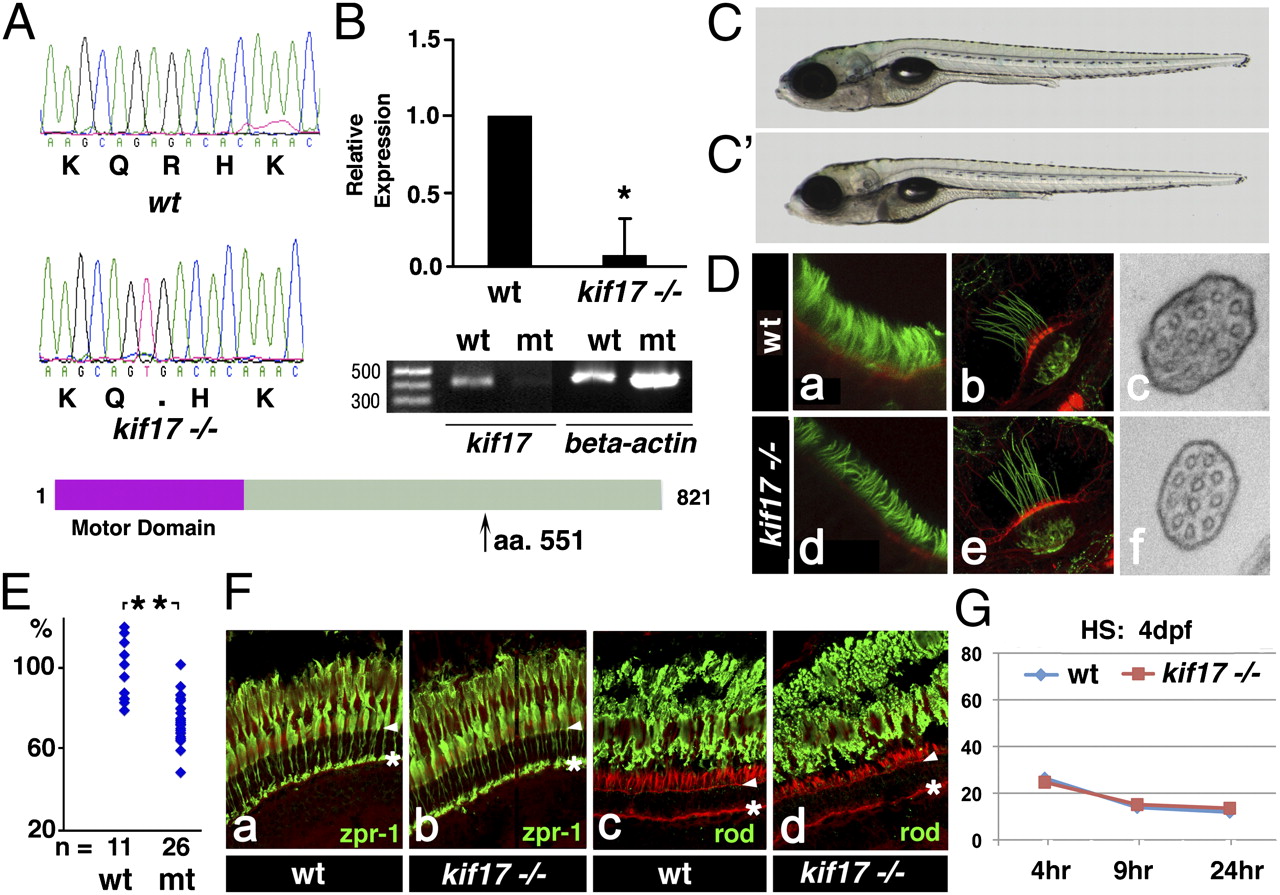Fig. 3
kif17 mutant phenotype. (A) Upper: Sequences of WT and kif17sa0119 mutant allele. Lower: Diagram of the Kif17 protein. Arrow indicates the site of the stop codon. (B) Upper: Quantitative RT-PCR. Expression level relative to WT is provided. Data were normalized for actin expression (P < 0.05). Lower: RT-PCR amplification of the kif17 transcript in WT and mutant embryos at 5 dpf. (C and C′) External phenotype of WT (C) and kif17sa0119 (C′) larvae at 7 dpf. (D) Confocal and ultrastructural analysis of cilia in WT and kif17sa0119 mutants. Larvae were stained with anti-acetylated tubulin antibody to visualize cilia in the nasal pit (a and d) and ear cristae (b and e). c and f, Ultrathin sections perpendicular to the distal tips of olfactory cilia in WT and mutant, respectively. (E) Graph showing the length distribution of nasal cilia in WT and kif17sa0119 mutants at 7 dpf. Each dot represents the average cilia length measured in a single individual. ?n? is the number of individuals analyzed (P ≤ 0.001). (F) Confocal images of transverse cryosections through the retina of adult WT (a and c) and kif17 homozygous mutant (b and d) individuals stained with Zpr-1 (a and b) or anti-rod opsin (c and d) antibodies (green) and counterstained with phalloidin (red). Arrowheads indicate the outer limiting membrane, asterisks the outer plexiform layer. (G) Measurement of opsin transport efficiency from the inner to the outer segment in WT and kif17sa0119 mutant animals at 4 dpf. The intensity of GFP?opsin signal in the cell body is measured at 4, 9, and 24 h after heat shock. For each data point, 15 to 20 retinae, and 30 to 36 photoreceptors were analyzed. This experiment was performed as published (29) and illustrated in Fig. S1 (*P < 0.05; **P < 0.001).

